Musharraf treason case: SC quashes special court’s order for re-investigation
Apex court says special court may not include additional persons in investigation without government's approval
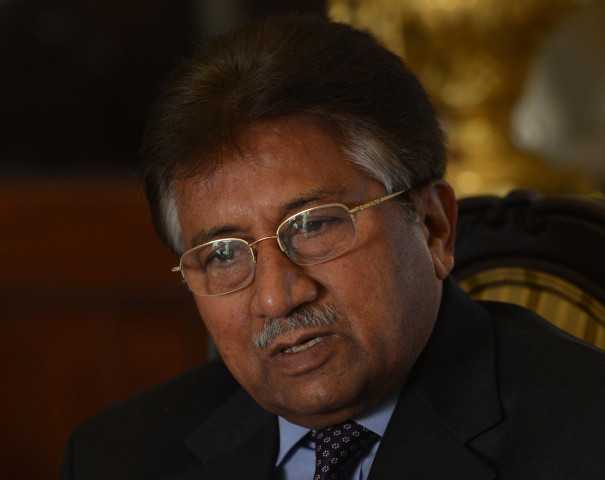
The top court observed that the special court may not have enough powers to include additional suspects in the investigation of a case unless the federal government itself wants them to be investigated. PHOTO: AFP/FILE
A three-judge bench of the apex court, headed by Justice Asif Saeed Khosa, observed that the special court may not have enough powers to include additional suspects in the investigation of a case unless the federal government itself wants them to be investigated.
Musharraf solely responsible for imposing emergency in 2007: AGP
The court said that a fresh investigation into the high treason offence by associating any person with the same, lies within the prerogative of the federal government and the Special Court or the Islamabad High Court. Islamabad could not name any individual to be associated with any such investigation.
“There is no provision in the Criminal Law Amendment (Special Court) Act, 1976 requiring the Special Court to await the result of any fresh investigation or to postpone the trial of an accused person till an amended or additional statement of the case or list of accused persons or the charge is submitted by the federal Government after such fresh investigation”
The top court further directed the Special Court to proceed with Musharraf's trial without any delay.
The judgement had been reserved on Wednesday over an appeal filed by the apex court’s former chief justice Abdul Hameed Dogar, requesting the SC to quash the Special Court’s order, seeking fresh investigation in high treason case.
During the hearing of the case, Justice Khosa remarked that whatever was done with superior court judges by then president Musharraf in 2007 would not affect the court’s decision and justice would be done to the former military dictator in accordance with the Constitution and law.
The SC judge referred to an earlier judgement passed by a 14-member bench of the apex court which said Musharraf was solely responsible for November 3, 2007 emergency, saying those judgements had attained finality. “When it was held by the superior courts then why was it required to include others as abettors and collaborators?” he questioned.
Musharraf wanted PPP out in 2008: Khursheed Shah
Further, Justice Khosa also put to question the basis on which the special court had passed November 27 order nominating former prime minister Shaukat Aziz, the then chief justice Abdul Hameed Dogar and ex-law minister Zahid Hamid when the Islamabad High Court had dismissed its order on November 11 regarding the same matter.
However, Musharraf’s counsel Farogh Nasim contended that the trial of all accused should be conducted jointly. He requested the bench to refrain from giving such observations as the issue was not before its consideration.
The counsel had further recommended the top court to give a timeline to the Federal Investigation Agency for the completion of investigation in the case, adding that there should not be selective prosecution.
Meanwhile, Attorney General for Pakistan Salman Aslam Butt stated that no trial court could direct the federal government for the reinvestigation. “It is the sole prerogative of the federation to file a complaint [in high treason case], modify it or add others as abettor, aider or facilitator. It is the federal government that under the Criminal Law Amendment (Special Courts) Act, 1976 send the case to any investigative agency for investigation or re-investigation,” he said.
The AGP said there should be no bar on the investigation ordered by the federation, adding under the law the court could not direct the agency for investigation as it is the sole prerogative of the federation.
Legal experts believe Musharraf case is over and done with
Justice Tariq Pervaiz asked whether any application was filed before the special court for nomination of others as accused. Farough Naseem replied that 27-11-15 order was passed on the basis of IHC’s judgment, adding the high court order was the consensus order as all the parties agreed that there should be investigation at large.
The counsel told that ex-PM Shaukat Aziz before 3rd November 2007 wrote a letter to General (retd) Musharraf urging him to impose emergency and in that regard he had moved a summary which had been wiped out. Justice Khosa remarked no one knows whether that letter was written earlier or after the emergency therefore it should not be discussed.
Farough Naseem argued that justice (Dogar) is responsible for the ouster of other judges of superior courts. He said the petitioner has not come to this court with clean hands.

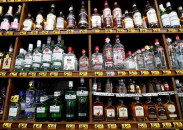
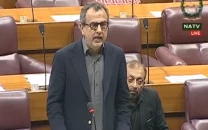
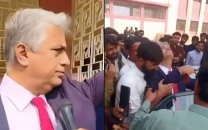


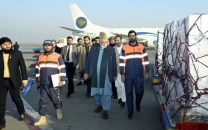












COMMENTS
Comments are moderated and generally will be posted if they are on-topic and not abusive.
For more information, please see our Comments FAQ